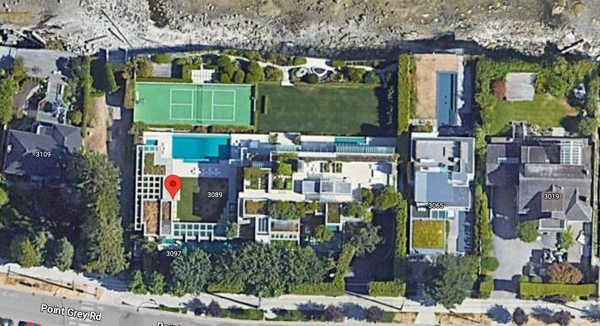The following is a transcript of a podcast discussion, which you can download in full for free on Apple, Spotify or Google. The transcript has been edited and condensed for length and clarity.
Alex Cosh, news editor of The Maple: Davide, how are you feeling about the merger so far?
Davide Mastracci, opinion editor of The Maple: Pretty good. The reaction from readers and members has been good, and that's sort of what matters most.
Alex: The responses have been overwhelmingly positive on the Maple side. And we've been receiving on social media, as I'm sure you've seen too, some very kind and gracious words from our colleagues in the media industry. So that's been really great to see as well.
What, if anything, is going to change as a result of this merger in terms of what we do and what we contribute to Canadian media?
Davide: I think probably more is staying the same than changing. So, for example, in terms of staying the same, you will continue doing what you've done in the news section, and I'll continue doing what I've done in the opinion section. We'll both have control over our sections, like we did when they were separate publications.
In terms of what will change, I think we'll be able to work with each other a little bit more, which could probably lead to more comprehensive coverage for our readers. One thing we've talked about before is I've published a lot of public resources in the past. For example, I did one listing all the MPs that are landlords, or are investing in real estate. With the merger now, on that sort of thing, if you wanted to, you'd be able to do follow-up original reporting on it to hold those politicians to account or dig deeper into the story.
As a result of that our readers will be getting a deeper exploration of the topics.
Alex: I think that's a really key point, in terms of us having more time to dedicate to more in-depth and intensive research projects. Speaking for myself, I was basically solely responsible for putting together a newsletter every day, or editing and commissioning an article for each day, which is a ton of work. In between that I did manage to produce some of my own original work. But obviously, there are time constraints.
I think now we'll be able to collaborate more, to provide each other more space to pursue our own investigative projects, which will yield, I think, higher quality journalism and, like you say, a more comprehensive publication.
In terms of what we contribute to Canadian media, I think the main thing that will stay the same is that we continue to be a key voice of what I would describe as the independent left in Canada. There are great publications that do similar work, but I think we're probably among the largest, and we don't have any institutional affiliations or ties whatsoever, which does mean we are completely editorially independent and can pursue topics that might otherwise be seen, implicitly or explicitly, as off limits for other outlets.
Since we made the announcement about the merger last week, the response from both of our readers and our colleagues in the media industry has been overwhelmingly positive. On the Maple side, 96 per cent of our subscribers indicated that they approve of the change, and many actually wrote to us to express their delight, which was really nice. I believe it was a similar story over on the Passage side.
Davide: Yeah, so I reviewed all of the responses this morning, just to have them as up to date as possible. There were 620 ratings, and of those 620, just five of them disapproved. So it's about 99.2 per cent that have approved of the merger, which is really good. Then there were more than 200 written responses, and I've read through all of them, and I'm going to keep doing so. If anyone is listening and wants to contribute one, please do, because I will read it.
What I found from reading them is a lot of people said that they had thought that we should do this. The idea was already in their minds, for some of the reasons that we've already discussed.
There were a lot of responses from people saying that, in the past, they wanted to give both of us money. But they could only afford one, or because they couldn't give to both ended up just preferring to not and so they said that they're happy now, because they feel like their one membership will be able to help both.
Then even more broadly, there were a lot of responses that felt like there's too many left publications or just broadly progressive publications in Canada, in terms of who to give financial support to. So this merger is kind of a step toward making it easier for people.
The general tone from a lot of people was they're happy about it, because they believe that it will make us stronger.
Alex: Obviously, this has been a big, big change and it has taken a lot of work to make this happen behind the scenes. Looking forward now, what are some opportunities that you see from this change and maybe also some challenges in the coming months and years?
Davide: Being able to share the articles that we publish with a bigger audience will be great. Something else that's new is we've opened up a comment section for members, and we have some new newsletter features as well that you'll be seeing.
With those features, like with the comment section, we'll be able to build a deeper sense of community with readers and allow readers to do that with each other as well. I'm looking forward to that, because we have a lot of smart and passionate readers.
In terms of challenges right now I’m just sort of focused on whatever potential logistical issues may arise from the merger, in terms of the boring stuff like account management and payment emails, so that should all be pretty smooth.
And then I guess one somewhat unique to me is ensuring people know that Passage still exists in a new form, and that it hasn't disappeared.
Alex: I want to turn to this first question or rather a comment we had from a reader, which I think kind of spoke to some of the concerns we've heard. Here's what the sender wrote:
"When I worked in the print media industry before retiring, mergers seemed to be an annual feature of wherever I was. Of course, we were told bigger is better, there would be no layoffs. It was all in the family friendly merger. And along with any other feelgood spin phrases the consultants could dig out. It was all bunk, of course. Axes fell within months, readers saw fees rise, quality of work shrunk, corporate owners slipped in, and we became part of a profit centre for a hedge fund.”
So given the current state of Canada's media industry, and what usually follows from mergers, I think these are reasonable concerns. But I think we should make a couple of things really clear from the outset. The first one is that nobody is getting laid off. Neither you nor me, nor anyone else within our organization.
And this merger was conceived in part specifically to give each of us more time to invest in higher quality work so that we would have more breathing room in our day-to-day schedule to focus on more in-depth, impactful and investigative journalism and commentary and resources and all the other great stuff that both publications do. The objective really is better quality work, not an increase in quantity as such.
Crucially, there are no hedge fund managers or consultants anywhere near this organization. We are still a 100 per cent reader-funded nonprofit publication. And kind of related to all this, I think it's really important to stress that you and I were part of the decision making process in figuring out this merger.
Davide: Like you mentioned, we’re 100 per cent reader funded. I want to stress how unique that is. Even other leftist or progressive publications aren't 100 per cent reader funded. That unique situation, I think, is key to allowing us to avoid all of those pitfalls that typically come with mergers.
Most of the time with mergers, you're taking two, let's say newspapers, and combining them. And those two newspapers will have a lot of overlap. Let's say they both have two or three sports reporters; they'll both have several news reporters. Because the businesses that own them want to make more profit, they will end up just cutting jobs, because they say, ‘why do we need four when two can do the job?’ That's just not the case here at all, because Passage was a publication solely focused on opinion, and The Maple was a publication that was overwhelmingly focused on news. We did really do different things. There wasn't any duplication. So it's kind of just a natural fit to create a more comprehensive publication.
The other one thing is that if you and I didn't agree that the merger was a good idea, I don't think it would have happened. So we're really behind this. And that's pretty unique as well.
Alex: I think to put it in even simpler terms to what you've just described there: Whereas most corporate media mergers involve fewer people doing more work, in this case, it's the same number of people not doing less work, but doing higher quality work.
Here's an interesting question, that you highlighted, about the name of the publication. The commenter wrote:
“I would have preferred if the merger name included Passage and not be subsumed by The Maple. The name of a merger should not be just the name of one of the entities; either the new name reflects both entities or get a new name that reflects both. It gives the impression that The Maple has a bigger following.”
So this was something we discussed quite a bit internally. Why did we ultimately stick with the name "The Maple"?
Davide: Over the past few years, you and I both built up our separate publications quite a bit, in terms of name recognition from people in Canada, people online, but also in terms of more behind-the-scenes stuff like Google search results, which are all really key to helping new people find our work, which is ultimately what we want.
If we went with a completely new name, we’d basically have to throw all of that out and start over completely, which would be a pretty major step back. The idea was always that we would choose one of the two.
We ended up going with The Maple because it does, in fact, have a larger audience in terms of people signed up for emails, and paying members as well, although Passage gets a bit more traffic. A lot of the people signed up to The Maple were formerly part of North99, and they just went through a rebranding a year and a half ago. So we didn't want to do that all over again for those people.
We also know that the majority of the Passage people know what The Maple is, and they like it. So it's not like The Maple is a stranger to the majority of them. And that change also doesn't mean that the Passage members are any less important than before, in any way. The opinion section and the opinion articles will be my absolute priority.
The one other thing I would say is there's more to the rebranding or to the merger than just the name. If you check out the new website that we have, which is readthemaple.com, you'll see that it looks much more like the Passage one than the old Maple one. So I think Passage readers will see traces of Passage all over the publication.
Alex: This last question is kind of fun. The sender writes:
“Is there any chance of you guys getting on CBC political opinion panels? They seem to range from Globe and Mail as their centre and go right from there. Have you asked?”
I want to start by saying I'm very flattered that someone would want to see us on TV. Davide, can you see this happening anytime soon?
Davide: In short, no. Because a lot of times we cover things that they don't really seem to care about. Or when it is a topic that they care about or talk about, we often or our writers often have views that they don't really like to feature, so we wouldn't really generally fit into what they're trying to offer to viewers.
When I have been asked in the past for things like that, when I worked at more mainstream places, I usually said no anyway because I didn't like doing them. So I'm probably not the best person to ask, but I don't know. What do you think?
Alex: I really don't want to be on TV. I would maybe consider going on radio or audio, because I feel more comfortable in this medium. There are Passage and Maple contributors, like Nora Loreto, who do sometimes go on TV. I think we definitely cover things that are of interest to these more mainstream outlets. But our whole MO is really covering the things that dominant media refuse to cover, and so almost by definition, they're not looking to us for comment or for analysis on these really key issues.
That being said, our work has been picked up by mainstream publications. We've been cited by a whole bunch, ranging from Fox News (not in an approving way, of course), to The Globe and Mail. So we make an impact in dominant media all the time, but I'm not sure that we're likely to get a TV invite for our insights on issues anytime soon.







